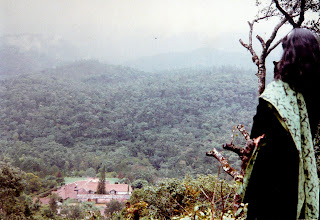Wilfred Owen and the 90th anniversary of the ending of WW I

November is the month in which the First World War ended in 1918. The world, now flush with more threats and challenges is celebrating its 90th anniversary. Let’s pray for a war free world, especially since we have to face many wars from within.
The best poem that came out of the First World War indeed was the Strange Meeting. Lt.Wilfred Owen, the poet died at the young age of 25 fighting the Germans in the killing fields of France, on the 4th of November 1918, just a few days before the war was to end. He was awarded the Military Cross following his actions of October 1918 at Joncourt on the Beaurevoir-Fonsomme Line. Confirmation of the award came for the finest poet of that generation after his death.
“I am the enemy you killed, my friend/I knew you in this dark, for so you frowned/Yesterday through me as you jabbed and killed / I parried but my hands were loathe and cold /Let us sleep now---“, wrote Owen perhaps aware that it was time for him too to go to sleep from which he was never to wake up.
Reading about any war or battle I get reminded of Owen who wrote about “the pity of war, the pity war distilled”.
I found that there was an Indian connection to Owen. Following extracts from an article titled “Tagore and his India” by the 1998 Nobel laureate Amartya Sen were enlightening.
“Susan Owen, the mother of Wilfred Owen, wrote to Rabindranath in 1920, describing her last conversations with her son before he left for the war which would take his life. Wilfred said goodbye with "those wonderful words of yours—beginning at 'When I go from hence, let this be my parting word.’ “When Wilfred's pocket notebook was returned to his mother, she found "these words written in his dear writing—with your name beneath." Ref: http://nobelprize.org/nobel_prizes/literature/articles/sen/index.html

Susan Owen, Wilfred's mother is in the centre
Owen had written more than 500 letters to his mother, Susan, and she had kept nearly every word written by her first born. All these letters were found out much later in 1956.
I drop my tears in the memory of Owen and the First World War.
Dubai, 16th November 2008.
PS: Those of my readers with an inclination for poetry could hear a fine rendering of the poem “Strange Meeting” by going to the following link, which also provides a text of the poem. http://classicpoetryaloud.podomatic.com/entry/2008-02-03T11_41_27-08_00 .



Comments
I am starting to spend a little time before the computer after the fracture on my foot. Slowly catching up.
sir i have used a picture from your blog, the opening of karamana bridge, in my new post.